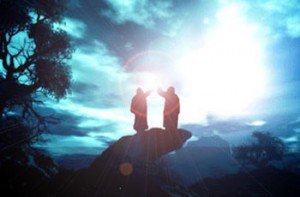Ghadir Khumm

Today, the 18th of Dhu’l-Hijjah (December 6) marks Eid Ghadir Khumm (Feast of Ghadir).
After completing his last pilgrimage (Hajjatul-Wada’) in the year 10 AH (10 March 632 CE) this day and ten years after the migration (hijrah), the Noblest Messenger of Allah Hazrat Mohammad (PBUH) was leaving Makkah toward Madinah, where he and the crowd of people reached a place called Ghadir Khumm (which is close to today’s al-Juhfah).
It was a place where people from different provinces used to greet each other before taking different routes for their homes.
At that point, the Messenger of Allah (PBUH) ordered his close followers to call all the people in different places to join him in his last pilgrimage.
On this pilgrimage he taught them how to perform the pilgrimage in a correct and unified form.
This was first time that the Muslims with this magnitude gathered in one place in the presence of their leader, the Messenger of Allah (PBUH).
On his way to Makkah, more than seventy thousand people followed Prophet (PBUH).
On the fourth day of Dhu’l-Hijjah more than one hundred thousand Muslims had entered Makkah.
In Ghadir Khom, the following verse of the Qur’an was revealed to the Prophet (PBUH):
“O Apostle! Deliver what has been sent down to you from your Lord; and if you don’t do it, you have not delivered His message (at all); and Allah will protect you from the people …” (Qur’an 5:67)
The last sentence in the above verse indicates that Hazrate Moahammad (PBUH) was mindful of the reaction of his people in delivering that message but Allah informs him not to worry, for He will protect His Messenger from people.
Upon receiving the verse, the Prophet (PBUH) stopped on that place (the pond of Khumm) which was extremely hot.
Then he sent for all people who have been ahead in the way, to come back and waited until all pilgrims who fell behind, arrived and gathered.
He ordered Salman to use rocks and camel toolings to make a pulpit (minbar) so he could make his announcement.
It was around noon time in the first of the Fall, and due to the extreme heat in that valley, people were wrapping their robes around their feet and legs, and were sitting around the pulpit, on the hot rocks.
On this day the Messenger of Allah (PBUH) spent approximately five hours in this place; three hours of which he was on the pulpit.
He recited nearly one hundred verses from The Glorious Quran, and for seventy three times reminded and warned people of their deeds and future.
Then he gave them a long speech.
The following is a part of his speech which has been widely narrated by the Sunni traditionists:
The Messenger of Allah (PBUH) declared:
“It seems the time approached when I shall be called away (by Allah) and I shall answer that call. I am leaving for you two precious things and if you adhere to them both, you will never go astray after me. They are the Book of Allah and my Progeny, that is my Ahlul Bayt. The two shall never separate from each other until they come to me by the Pool (of Paradise).”
Then the Messenger of Allah continued:
“Do I not have more right over the believers than what they have over themselves?”
People cried and answered:
“Yes, O’ Messenger of God.”
Then followed the key sentence denoting the clear designation of ‘Ali as the leader of the Muslim Ummah.
The Prophet (PBUH) held up the hand of ‘Ali and said:
“For whoever I am his Leader (mawla), ‘Ali is his Leader (mawla).”
[In some narrations the word used was wali rather than mawla – with the same implication]
The Prophet (PBUH) continued:
“O’ God, love those who love him, and be hostile to those who are hostile to him.”
These were the key parts of the speech of the Prophet [s].
Immediately after the Prophet (PBUH)finished his speech, the following verse of the Qur’an was revealed:
“Today I have perfected your religion and completed my favor upon you, and I was satisfied that Islam be your religion.” (Qur’an 5:3)
The above verse clearly indicates that Islam without clearing up matter of leadership after Prophet (PBUH) was not complete, and completion of religion was due to announcement of the Prophet’s immediate successor.
After his speech, the Messenger of Allah (PBUH) asked everybody to give the oath of allegiance to ‘Ali [a] and congratulate him. Among those who did so was ‘Umar b. al-Khattab, who said:
“Well done Ibn Abi Talib! Today you became the Leader (mawla) of all believing men and women.”
Allah ordered His Prophet (PBUH) to inform the people of this designation at a time of crowded populous so that all could become the narrators of the tradition, while they exceeded a hundred thousand.
In Iran and many Muslim countries the festival is a public holiday.








